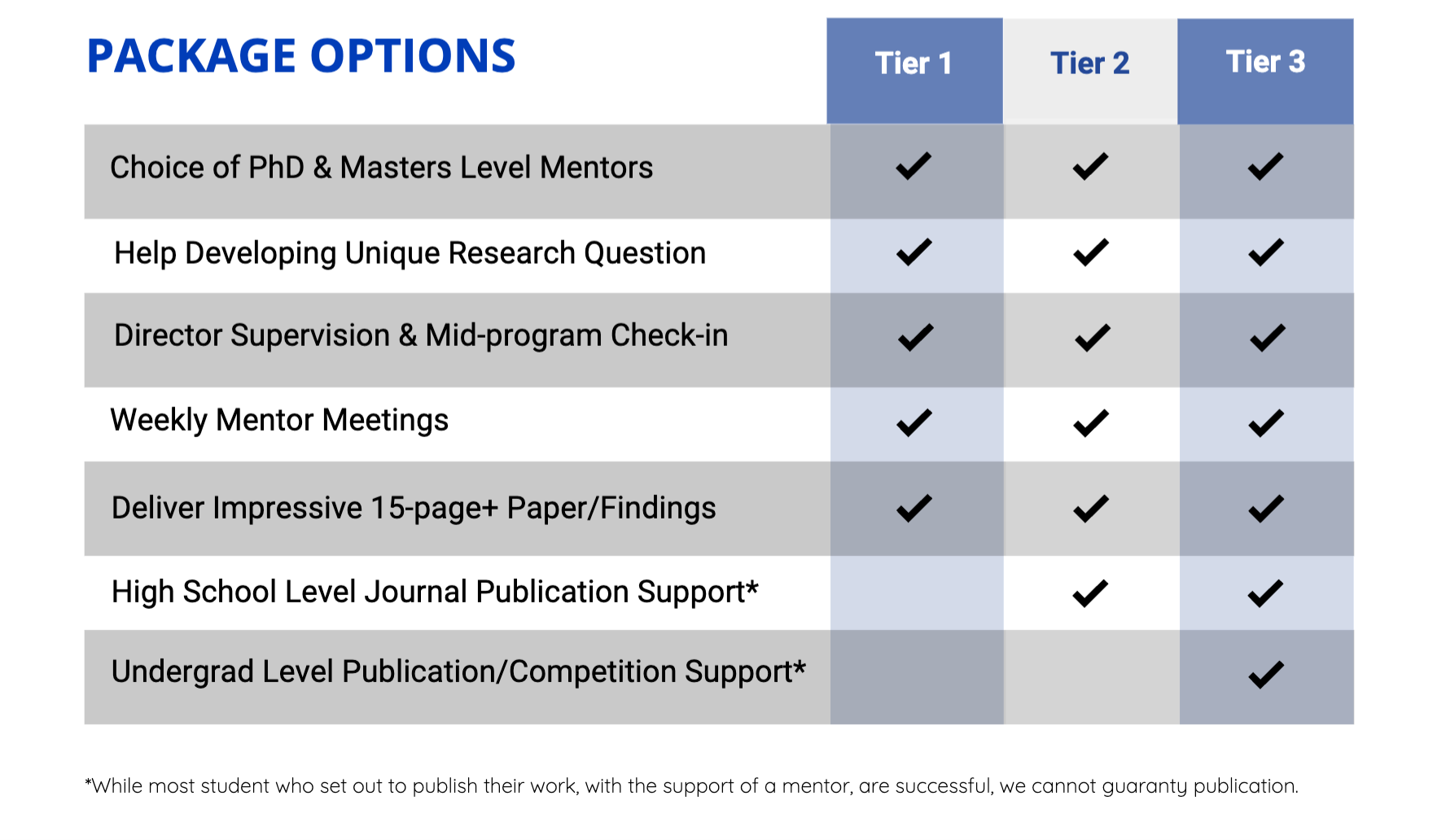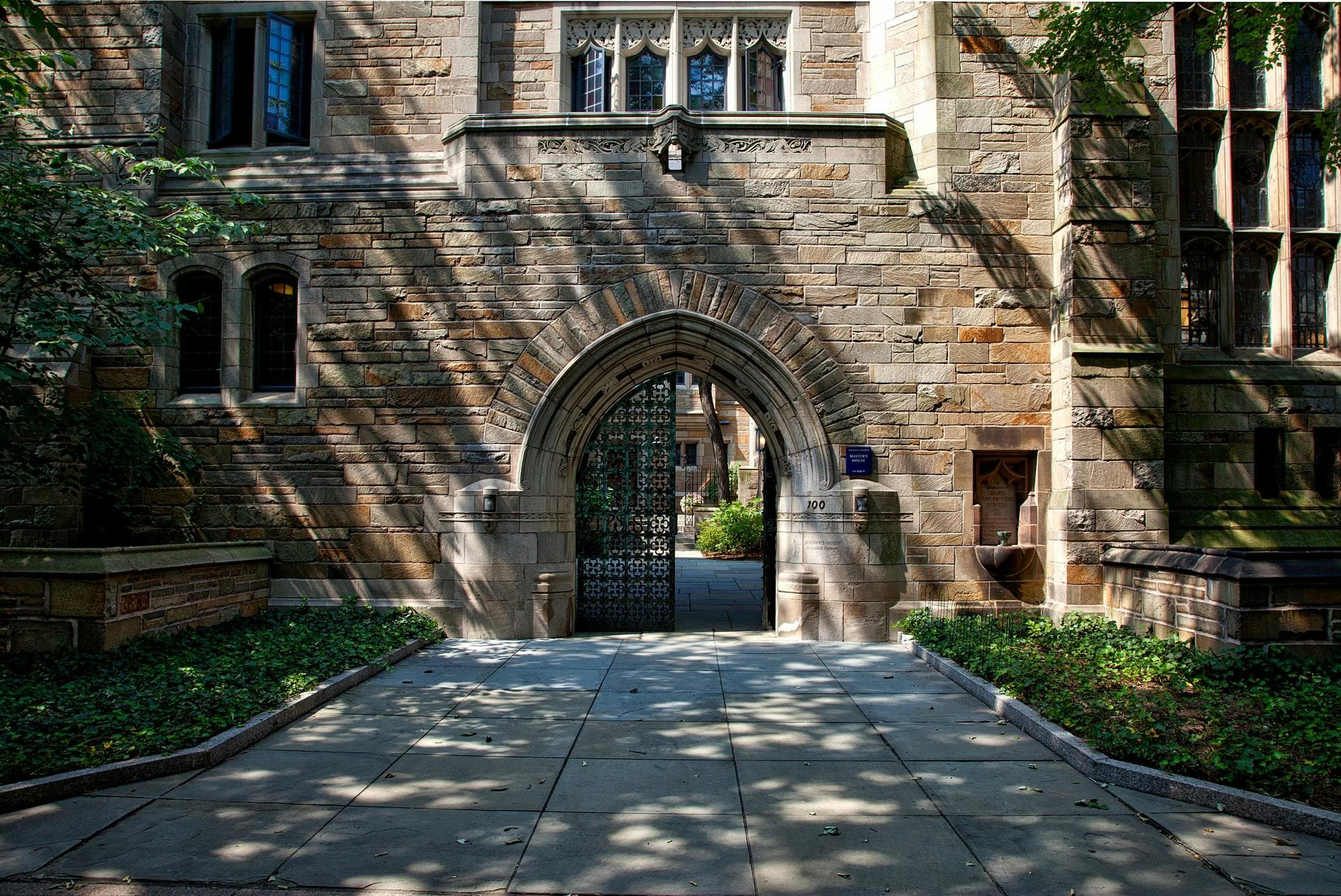
Get into a Top College by doing a Research Mentorship or Academic Research Project
One of the most common questions we receive at Ivy Tutors is, "How do I (or my child) get into a top college? For some students the key to a wow-worthy application is a research mentorship.

Photo by Pixabay
One of the most common questions we receive at Ivy Tutors is, "How do I (or my child) get into a top college?" It's clear from what they've seen that the answer is not just simply a solid academic record or great standardized test scores. It's true; college admissions are highly competitive and there are just too many applicants with great transcripts. Ivy Tutors Network seeks to "pull back the curtain" on college admissions to help students and their families make a plan and take the right steps to reach their admissions goals. For some students, one of those right steps is an independent project. Such projects allow students to show that they are able to engage with academic materials actively - not just passively by attending a class and passing a test that shows they were paying attention. They also allow students to show their perspective on a topic they care about, and undeniably exhibit college-readiness skills (think: researching, writing long papers) which can make applicants stand out from the sea of other motivated and qualified high school seniors. While many kinds of independent projects exist, we are big fans of academic research, which will be the topic of this article.
Our recommendations for summer activities overall, and research mentorships in particular, are based on our unique admissions approach that we call the PAGE method. If this is the first you've heard about it, we encourage you to start by reading this blog first.

Photo by Zen Chung
Types of Summer Opportunities for High School Students
Students looking to get into a competitive school for college should take advantage of the opportunities available in the summer months. While some students and families choose to begin these in 7th and 8th grades, college admissions committees are much more concerned with the high school years (the summer before 9th grade through the summer before 12th). When choosing which activities to participate in over the summer, consider the intersection between what interests you and what will support your (G) Goal, which is often to be accepted at your dream college in the prospective major you have chosen for your application.
Jobs & Internships
Taking a summer job or internship can be a great way to support your college academic goal. It's essential, however, to pick a job that will help you develop the skills and understanding that match your prospective major. Some jobs for high schoolers have lots of downtime or aren’t related to the student’s perspective. In these instances, it takes a little more initiative to relate what you’re doing to where you’re going academically. Because, at the end of the day, any job can be related to your prospective major. Even while working at a supermarket of filing papers, students can ask questions or gather data that might turn into an investigative journalism piece or enrich their academic research in another way. Students should make sure they are using their time at any job or internship to develop their (P) Perspective.
Volunteer & Community Service
Many parents, and consequently students, assume that volunteer hours and community service projects are necessary for their college admissions goals. This belief is a holdover from when college admissions were based on the "well-rounded student" model. In today's admissions environment, however, colleges are not interested in only seeing the volunteering activity - they want to see how students engage with the bigger questions around their volunteerism. For instance, they don't want to simply see that a student has worked at a soup kitchen. They want to see the student ask questions: Why is there a need for a soup kitchen in this area? Is there a low-income housing shortage? Is there problematic public policy? There are intellectual or business questions that can be asked about almost every single thing a student does, and it's important to ask those questions instead of spending all of our time on the activity itself, especially for upperclassmen like 11th graders.
Supplemental Education
Summer programs are great for middle school and 9th grade. A lot of people like summer programs because they're structured. You pick a course or program you're interested in, you show up, and there's a professor and a guided program. While they show interest in a particular academic area, it’s important to remember that they do not show initiative, which is at the heart of what college admissions committees want to see. We recommend supplemental education to make sure that the prospective major a student has chosen is the right path. However, once the path is chosen, we think it’s important to spend summers engaging in more unique activities.
Independent Projects
Independent projects, of which research mentorships are a subset, are by far the most impactful activities students can participate in. Further down this page, we discuss the types of projects available, and how to find the right one.
Pursuing Talent
Not all students have discovered their "talent" by college - and that's okay! But for students with a high aptitude for an artistic, musical, or athletic pursuit, using the summer to improve their skills can be an excellent use of their time and a great pathway into top-tier schools.
FUN!
It's a cliché but true: you're only young once. There are so many fun and relaxing ways to spend your summer that are unique to being a teenager. Don't forget to enjoy those over the summer, too, with no concern as to their "college readiness score." Summer is also a time to recharge and reset, which can't be underestimated in terms of life enjoyment or the ability to come into the next school year ready to succeed.
How to choose the right activities for college applications
- Quality over quantity. Students should consider participating in activities - whether in the summer or the school year - from the lenses of enjoyment/interest and connection to their (G) Goal. Simply having a long list of activities will not aid in the college admissions process (and might decrease their ability to enjoy their high school years!).
- Not what, but how. A lot of people say it's not what you do but why. We would argue why you started is less important than how you participated. How did you engage in the activity, and how was your engagement shaped by who you are and your unique perspective? If trying to figure that out has you feeling like a deer in the headlights, we're here to help.
- Leadership/Contribution. Everyone knows leadership roles are essential to show on college applications. However, there are a million opportunities to have these roles, and students mustn't look at them as something to check off and put on their activities/accomplishments list. Rather, showing how you contributed to the organization in that role is important.
- Initiative. Being able to show initiative is critical to a successful college application. We particularly want to be able to show a transition in 11th grade. It's okay for 9th and 10th-grade activities to be primarily motivated by self-interest and curiosity. In 11th grade, students must demonstrate how they've used their first two years of experience to positively improve or contribute to an activity or organization. Research projects are excellent for showing initiative, which is one reason we strongly recommend them.
- Challenge. Colleges like to see students who have challenged themselves. This can be in a wide variety of areas, from academic to athletic to intercurricular. Showing that you have not just taken the easy road is important.
- Intellectual curiosity. Colleges and universities want people who are curious about the world around them and motivated enough to ask some questions about it.

Photo by Karolina Kaboompics
What is a Research Mentorship Program?
A research mentorship program is designed to allow students to pursue an academic area of interest with the assistance and support of an expert. This is sometimes a subject matter expert and sometimes an expert researcher. A research mentorship is a chance for students to show initiative, challenge themselves academically, and prove intellectual curiosity. Students who choose a research mentor through Ivy Tutors Network will work with one of our 90+ tutors and mentors to delve deeper into the subject matter that interests them and think academically about their passions.
Our mentors are pursuing research themselves, either at the PhD or Masters level, and can guide students in their own research. Learning to do academic research, prepare for competitions, and even publish one's findings as a high school student can help open many doors in college admissions and beyond.

Photo by Andres Ayrton
How To Ask the Right Research Questions
Of course, a good research mentorship requires a good question. And sometimes, the question matters even more than the result. You don't have to come to a definitive answer or solve a planet-sized problem for the mentorship to help you in college admissions. Finding the right question and showing why you chose that question is what matters.
Some students choose to pursue publishing, often through a rigorous high school publication, but that shouldn’t be the end goal of using a research project for college admissions. The academic pursuit/curiosity is what matters.
You want your question to stick out. Choosing to study dementia or cancer is incredibly common, as is mental health research. And to be honest, a high schooler probably won’t have too much valuable insight into these huge topics that take years (or even decades) to properly study. Finding a question that interests you outside of what everyone else is doing can help you stand out in your application and explore your passions along the way.
To find the right question, you first need to narrow down your academic area of interest (biology, psychology, anthropology, etc.). Next, we recommend one of two paths: locally relevant or personally relevant.
Locally relevant questions are those the community cares about, and they can often be more powerful than personally relevant questions. You might find inspiration for these kinds of questions in a local newspaper article, city council meeting, or social media page.
Students can also ask a personally relevant question, either something that intrigues them or has directly impacted their life.
When helping students find the right question, Ivy Tutors Network relies on the PAGE method we use for admissions applications to land on the right topic. We consider past activities the student has done and how they could interact with a research question.
We also consider asking a question that foreshadows investigations in the future: a short research project is unlikely to reach a strong conclusion simply due to time constraints. But if we choose the right question, we leave the door open for further research in that area, either as another, longer research mentorship later in high school, or as something the student can pursue during college.
Additionally, we seek to ask a question that allows for evidence-building and the chance to publish if the student is interested in doing so. Note that publication is not a necessary step for the mentorship to be relevant and have an admissions advantage.
Lastly, we look to pose a question that clearly gives the student an opportunity to form a (P) Perspective. What have they learned from this? How has it shaped their worldview? How did their personal characteristics impact their research and the question they chose to ask?
How to Choose a Research Mentorship Program?
Finding the right research mentorship program is about access. You want to find a program that can pair you with a highly qualified researcher in your chosen field of interest and guide you in conducting your research.
The Ivy Tutors Network program has several tiers depending on your time and interest.

We encourage you to learn more about our program here and reach out with any questions.




